Lol Tolhurst - Interview
by Anthony Strutt
published: 22 / 12 / 2016
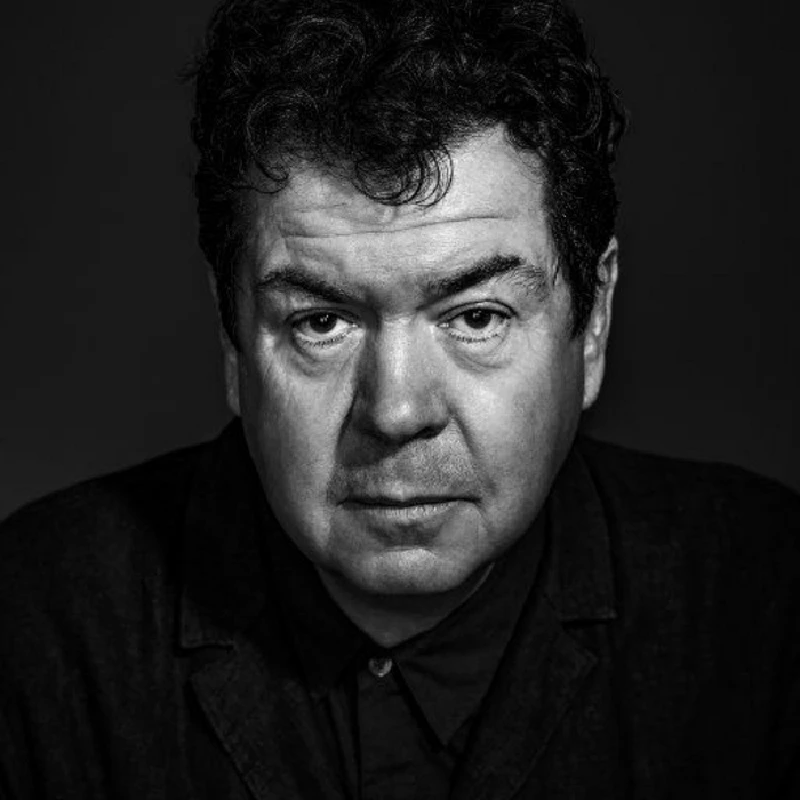
intro
Former Cure drummer and keyboardist Lol Tolhurst talks to Anthony Strutt about his memoir 'Cured' and his long-standing friendship with Robert Smith
Laurence 'Lol' Tolhurst' has written his memoir' Cured', which published by Quercus both in the UK and in the States, tells of his years as the drummer and then keyboardist in the Cure and his long-standing friendship with Robert Smith. In the early 1970s Lol and Robert formed their first band Malice which evolved into Easy Cure, who recorded at least an album's worth of decent material, which to this day remains officially unreleased but showed that there was immense talent there. In 1978 they shortened their name to just the Cure, and for the next eleven years, they fought through the tough times of being outsiders and drunk far too much, which left Lol, who developed alcoholism, with blackouts. After they signed a record deal with Polydor offshoot Fiction Records and left their home town of Crawley behind, they slowly crawled their way up until the Cure became one of the biggest bands in the world. Each chapter of 'Cured' goes through every stage in the band's career as well as describing the history and making of their albums, beginning with their punky debut 'Three Imaginary Boys' (1979), and continuing with their more progressive follow-ups, 'Seventeen Seconds' (1980) and 'Faith' (1981). Lol then goes on to write about 'Pornography' (1982), the bleak masterpiece that is his favourite album, followed by the psychedelic-edged 'The Top' (1984), its more poppy follow-up 'The Head on the Door' (1985). He concludes by describing the band's first double vinyl album 1987's 'Kiss Me, Kiss Me, Kiss Me' and then 'Disintegration' from 1989, which saw Lol and the Cure's relationship break down and his leaving of the band which lead to a long court case, which saw no winners and the destruction of one of Rock's longest partnerships in the alternative music scene. Lol and the Cure have now resolved their problems, and the end of the book finds him, having recovered from his alcoholic issues, reuniting with his former bandmates in 2011 to play some dates. Pennyblackmusic caught up with Lol Tolhurst for a brief chat after an official Q and A at Rough Trade East in London to talk to him about 'Cured'. PB: I have just finished reading 'Cured'. It isn't just about the friendship of two of rock's greatest outsiders, whose vision united the lost and lonely of the world, but it is about one man's journey into the world and what happened to him. Would you agree? LT: Yes, it's 'The Pilgrim's Progress', my version of it. I don't want to be all pompous but that's what it is absolutely. PB: For me the part of 'Cured' that hit home the most comes near the end when you are in the desert and you meet this old man from San Francisco who says to you, "Don't worry, everything will be fine, son." And from then on that is when your life improved and you got better and the next day you met your future wife, Cindy. LT: Yeah, I don't know if you believe in the subtle world, outside of the regular world, but I certainly have had examples of that, and that is an example of that to me. PB: Because you really don't know what's around the corner? LT: Right. PB: Are you glad you met Cindy when you did and not as a member of the Cure? LT; Yeah, she's more glad still that I met her then (Laughs). No, definitely things happen for a reason. I don't think that I would have met her earlier on. I had been to Los Angeles many, many times before, and I had never met her, so it was the right time. Everything was in season. PB: As well, as meeting Cindy, falling in love and getting married, you formed a new band Levinhurst in which Cindy sang and you played drums and keyboards. Did you not fancy giving singing a go yourself? LT: My singing is kind of like my hand writing. It is best left to other people. PB: Did you ever keep diaries while you were growing up? LT: No, the only thing I ever had like that when I was about ten. It just said, "Went to school, came home, went to school, came home," and that was about it. PB: How long did it take to write the book and research it? LT: I spent all of 2015 writing it. I decided to do it though in 2013, and started to do the research and get the ideas and to take some of the photographs back then. It took a couple of years basically. PB: You met Robert Smith when you were five years old. LT Right. PB: And you lived in Horley. Is that in Surrey or Sussex? LT; It is in Surrey. There is Gatwick Airport in the middle with Horley on one side and Crawley. Crawley is in Sussex. Simon Gallup and I came from Horley but Robert lived in Crawley. PB: When the punk scene came along, did you find that you wasn't really exposed to it as much as you would have been in London because you were based there? LT: We had to go and find it a bit. Some bands did, however, come to Crawley. I remember the Clash came to play, and it was just a huge riot. Suicide were opening for them. I always remember this skinhead getting up and trying to do something to Suicide, and Joe Strummer came out and said, "Stop doing this. You are being really stupid. Let them play!" That's when I noticed you had the power to do something good, rather then something stupid with music. PBM: After a brief deal with Hansa, you signed to Fiction. How did you first meet Chris Parry then? LT: We met him because we sent him a tape and he worked for Polydor, so he called us up and said that he liked what we were doing. We met him at The Lamb and Flag at St Christopher Place which is at the back of Oxford Street. PB: I believe that you never liked the artwork for 'Three Imaginary Boys'. LT: Right. It was something that we set up, but then we didn't like it and it wasn't really us. PB: So after that you took back control? LT: We had a couple of people involved in the artwork initially but we got one person to take over which was much better because it was then all in house really. PB: 'Three Imaginary Boys' is punky but it was quite different from most bands associated with punk. Do you think it sounded different because having been in Malice and Easy Cure first you had the time to grow? LT: Yeah, absolutely, and we didn't live in London. We were outside, and -I write about it in the book - the things that influenced us were the asylums and the countryside, and all that's there. PB: 'Seventeen Seconds' is my favourite album., You road tested it on the road in America before recording it. Did it change much between touring it and recording it. LT; Yeah, Some of it. You have to remember that in 1977 'Low', the Bowie album, came out, and Robert and I loved that. That is where we pulled some of that stuff from that such as Dennis Davidson's drum sound. It has a more open sound, with lots of highs and space in the middle. PB: We lost Bowie this year. Did it affect you? LT: It affected my life a lot. It was like guess what? We are next (Laughs). PB: On 'Seventeen Seconds' there is also my favourite Cure song of all time, 'A Forest'. How did that song come about? LT: I had a bigger title for that and Robert pulled the words out for that. We had this metronomic thing that came from that, and what I like about that song is we are like running but everything is standing still. It's like we are running on the spot basically. It was one of those things in which music sometimes just evolves very quickly out of thin air. PB: 'Pornography' is your favourite album. Why is it your favourite? LT: Just because it's the ultimate three-piece Cure album. We had defined our whole sound, and the way to play it. It stood the test of time, and doesn't sound old, doesn't sound fashionable. It just sounds like us. PB: I believe the original producer of 'Pornography' was going to be Conny Plank, Kraftwerk's producer. LT: Well, we talked about it but in the end we got Phil Thornalley in. Later on Conny passed away, and that put an end to that. PB; Thank you.
Band Links:-
http://www.thecure.com/http://www.loltolhurst.com
https://www.facebook.com/officialloltolhurst
https://twitter.com/LolTolhurst
https://en-gb.facebook.com/thecure
Picture Gallery:-
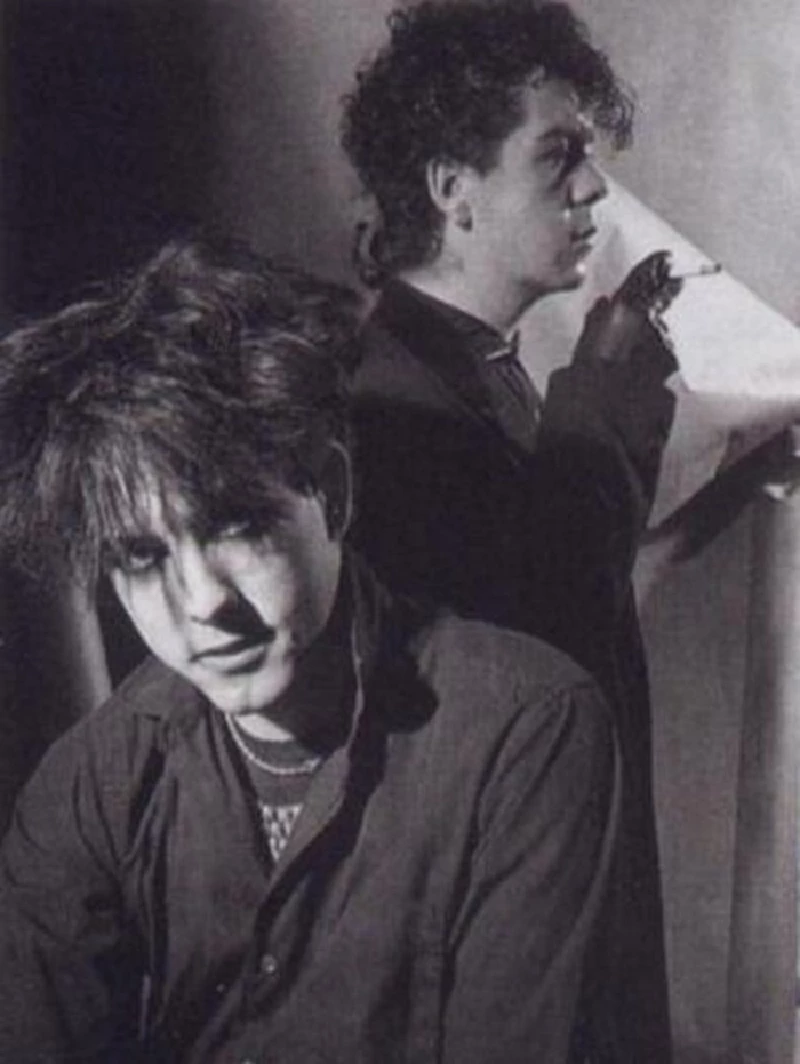
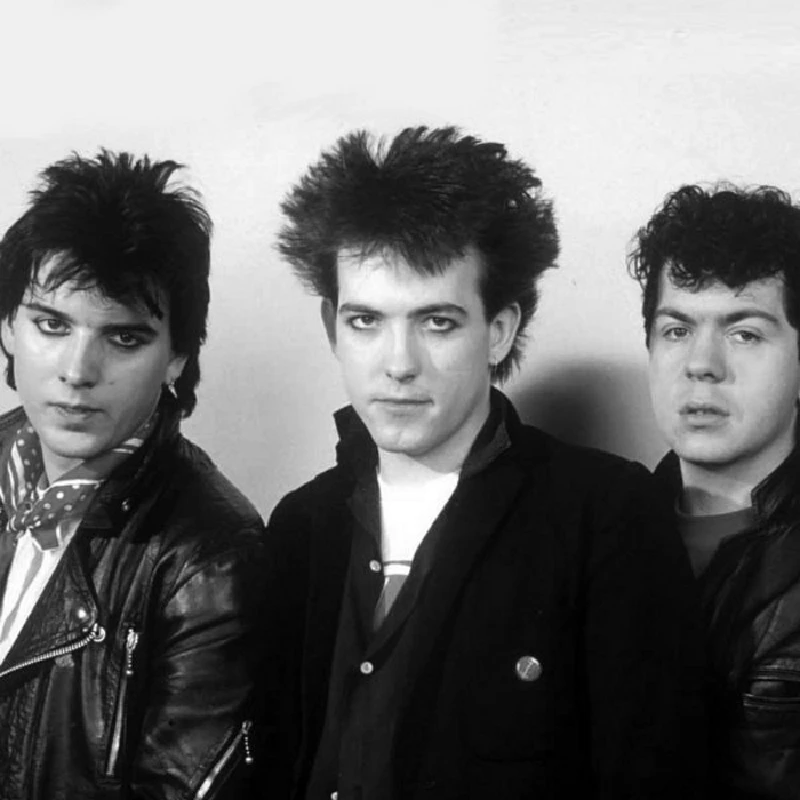
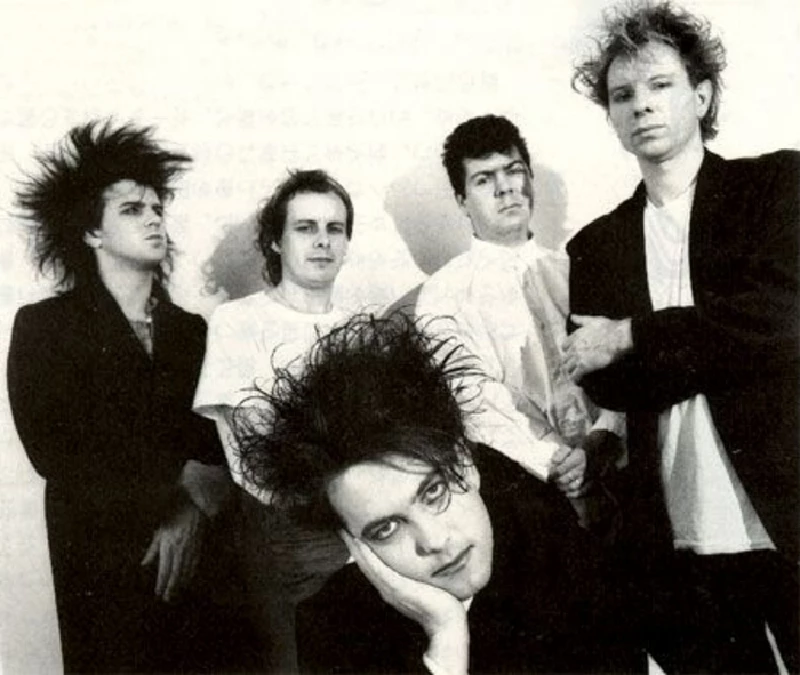
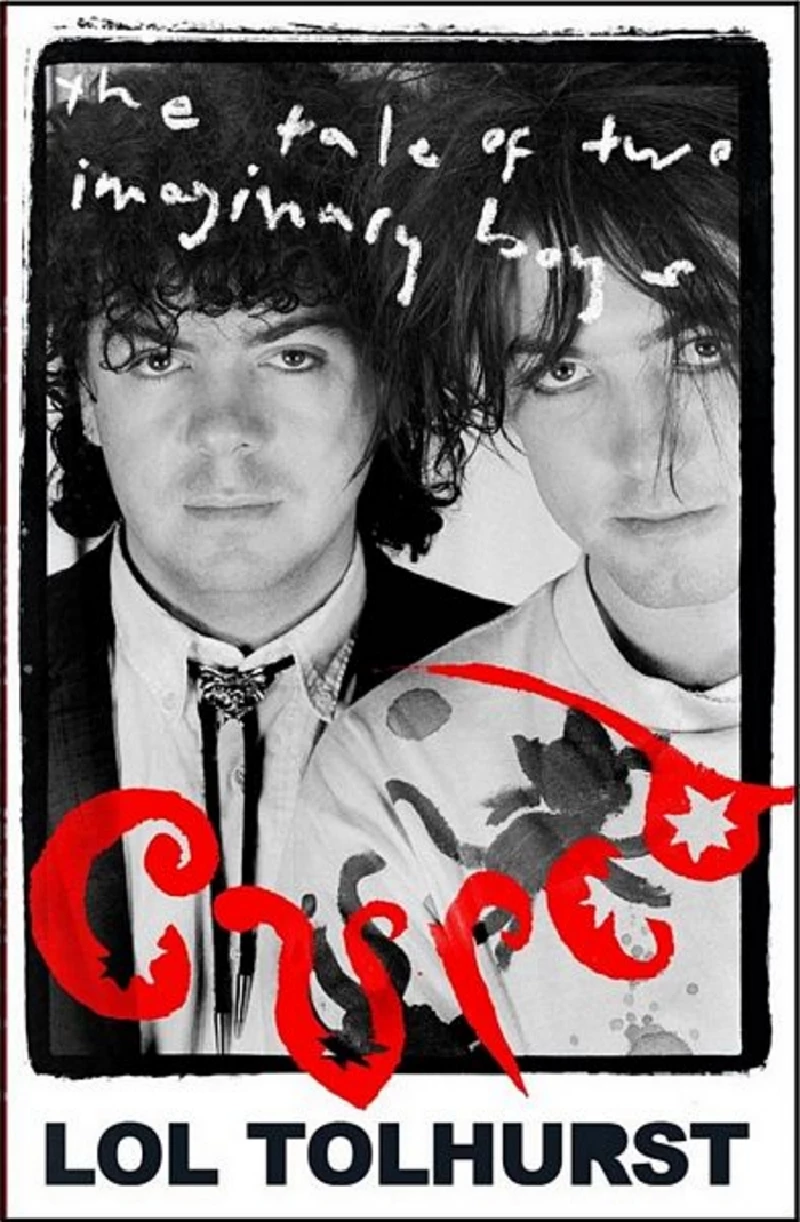
most viewed articles
current edition
Carl Ewens - David Bowie 1964 to 1982 On Track: Every Album, Every SongArmory Show - Interview with Richard Jobson
John McKay - Interview
Colin Blunstone - Thalia Hall, Chicago, 16/7/2025
Billie Eilish - O2 Arena, London, 10/7/2025
Bathers - Photoscapes 1
Loft - Interview
Visor Fest - Valencia, Spain, 26/9/2025...27/9/2025
Sir Tim Rice - Interview
Robert Forster - Interview
previous editions
Manic Street Preachers - (Gig of a Lifetime) Millennium Stadium, Cardiff, December 1999Heavenly - P.U.N.K. Girl EP
Beautiful South - Ten Songs That Made Me Love...
Peter Perrett - In Dreams Begin Responsibilities Interview Part One
Boomtown Rats - Ten Songs That Made Me Love....
Oasis - Oasis, Earl's Court, London, 1995
Coldplay - Wembley Arena. London, 16/8/2022
Trudie Myerscough-Harris - Interview
Prolapse - Interview
Pixies - Ten Songs That Made Me Love...
most viewed reviews
current edition
Davey Woodward - Mumbo in the JumboSick Man of Europe - The Sick Man of Europe
Lucy Spraggan - Other Sides of the Moon
Phew, Erika Kobayashi,, Dieter Moebius - Radium Girls
Suzanne Vega - Flying With Angels
Bush - I Beat Loneliness
Amy Macdonald - Is This What You've Been Waiting For?
Alice Cooper - The Revenge of Alice Cooper
Blueboy - 2
Cynthia Erivo - I Forgive You
Pennyblackmusic Regular Contributors
Adrian Janes
Amanda J. Window
Andrew Twambley
Anthony Dhanendran
Benjamin Howarth
Cila Warncke
Daniel Cressey
Darren Aston
Dastardly
Dave Goodwin
Denzil Watson
Dominic B. Simpson
Eoghan Lyng
Fiona Hutchings
Harry Sherriff
Helen Tipping
Jamie Rowland
John Clarkson
Julie Cruickshank
Kimberly Bright
Lisa Torem
Maarten Schiethart